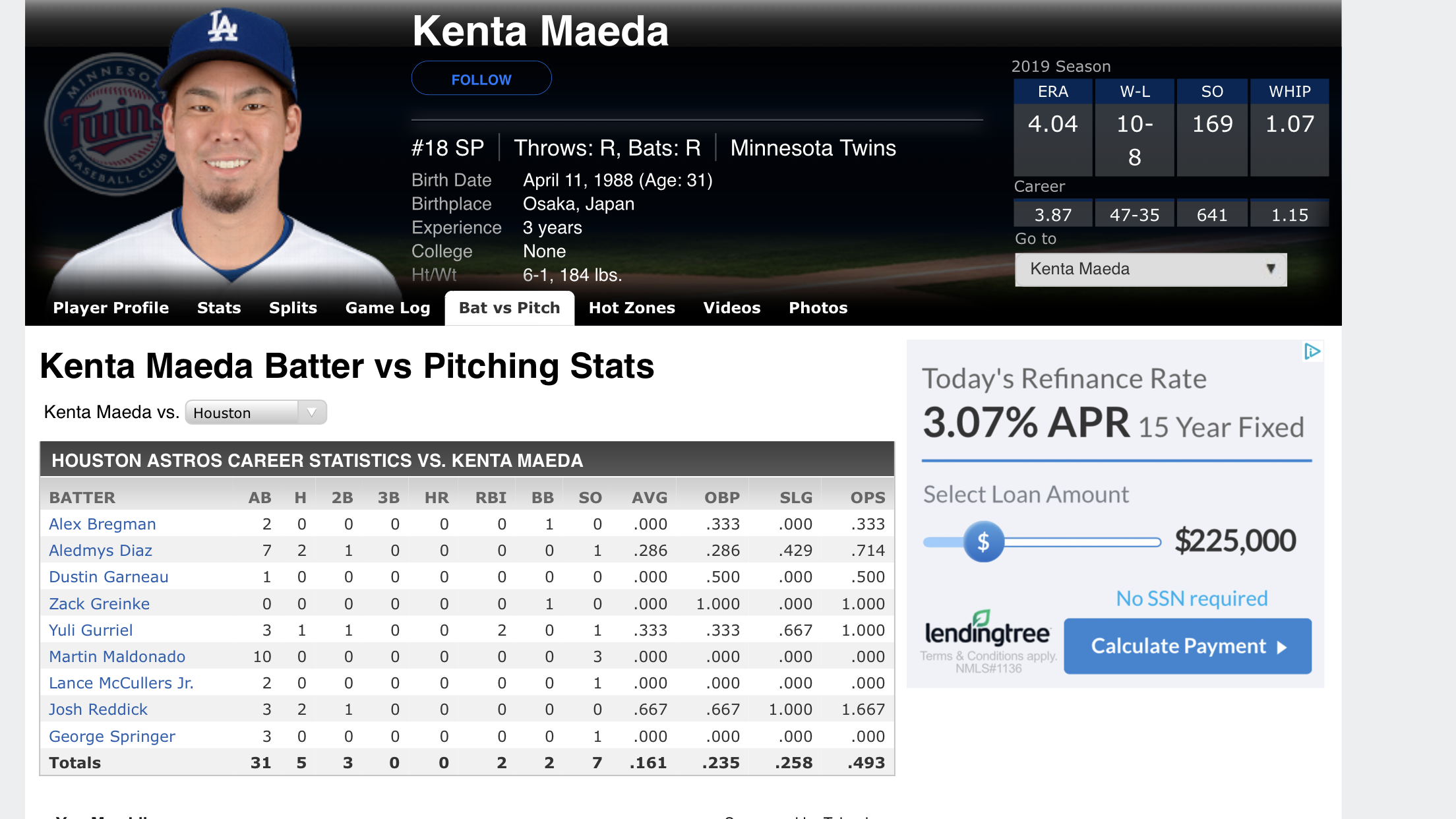The Minnesota Twins tried to send young, flame-throwing pitcher Brusdar Graterol to the Los Angeles Dodgers for fellow righty Kenta Maeda, only so LA could send Graterol to Boston in a package for Mookie Betts. When the deal was reported I felt the Twins should have received more for the 21-year-old pitching prospect who made the jump to the show after starting in Double-A last season. I sent the following to my friend and Punk Rock Twins Takes singer/songwriter after learning the details of the reported deal.
I’m wondering if we got anything else.
Apparently I wasn’t wrong to wonder how a 28-year-old fifth starter/reliever costs a team an MLB-ready pitcher with the potential to be a top-of-the-rotation starter or back-of-the-bullpen reliever. There were rumblings the Red Sox expected Graterol to be a starter and feared his medical history and throwing motion would force him into a reliever role.
At worst, Graterol is an electric reliever who struggles to stay healthy; at best, Maeda is an affordable innings eater who struggles to stay healthy. I only ever hoped Graterol could be an ace, but that electricity (100 mph heat) is worth more than a Maeda whether it starts the game or finishes it…unless you hardly have to pay that Maeda.
Well, the Dodgers need a reliever more than a starter anyway, especially with closer Kenley Jansen struggling last season (career-low WAR of 0.2). Graterol might even step into the role Maeda vacated, pitching multiple innings in relief for LA. So the Dodgers requested a bit more from Minnesota in exchange for Maeda and $10 million, which was all I really expected when wondering if the Twins got anything else.
Sweetening the pot was worth it for Minnesota and Team Falvine. Twins president of baseball operations Derek Falvey and general manager Thad Levine sent former Dodger prospect and outfielder Luke Raley, who came over from LA in the 2018 Brian Dozier deal, and the 67th pick in the 2020 MLB Draft. While that’s a relatively high draft pick, this 2017 study indicates players drafted in the second round and supplemental second round have a 50-50 chance to make the majors, and just over 30 percent play three or more big league seasons.
So the Twins added a competent starter they’ll basically only pay for one of the four years he’s under contract. And Minnesota only gave up a budding bullpen prospect with starter potential, a draft pick with half a chance to break the bigs, and a guy LA traded to them two seasons ago. Minnesota even has the opportunity to prevent Los Angeles from turning that 67th pick in the 2020 MLB Draft into a real threat. The Twins pick 60th.
Minnesota’s move for Maeda was the right one even before the waves bringing Mookie Betts from Boston to LA became murky. That’s because the Twins filled an immediate need for starting pitching on a long-term contract spending almost no money and dealing neither of their top two prospects. I say that because despite Graterol being the Twins’ third-best prospect in 2019 (83rd overall according to MLB Pipeline), Minnesota, Boston, and LA all see Graterol as a reliever.
Graterol has plenty of time to prove all of them and me wrong, and very well might. He’ll certainly have a better opportunity to do so in Los Angeles than he would have in Boston. But even if he does end up a starter someday, it won’t change the fact the Twins need someone to pitch 160 quality innings or more this year, next year, and for years after. The Twins’ Maeda money move might even help the Twins extend Jose Berrios and/or Jake Odorizzi, too. But when fans have Noah Syndergaard or Hyun-jin Ryu on the brain, Maeda and $10 million cash for Graterol, a player, and a second-round pick is just going to piss them off something fierce. But they shouldn’t let those wild ideas into their heads.





1 thought on “Twins Maeda Money Move Acquiring Kenta”